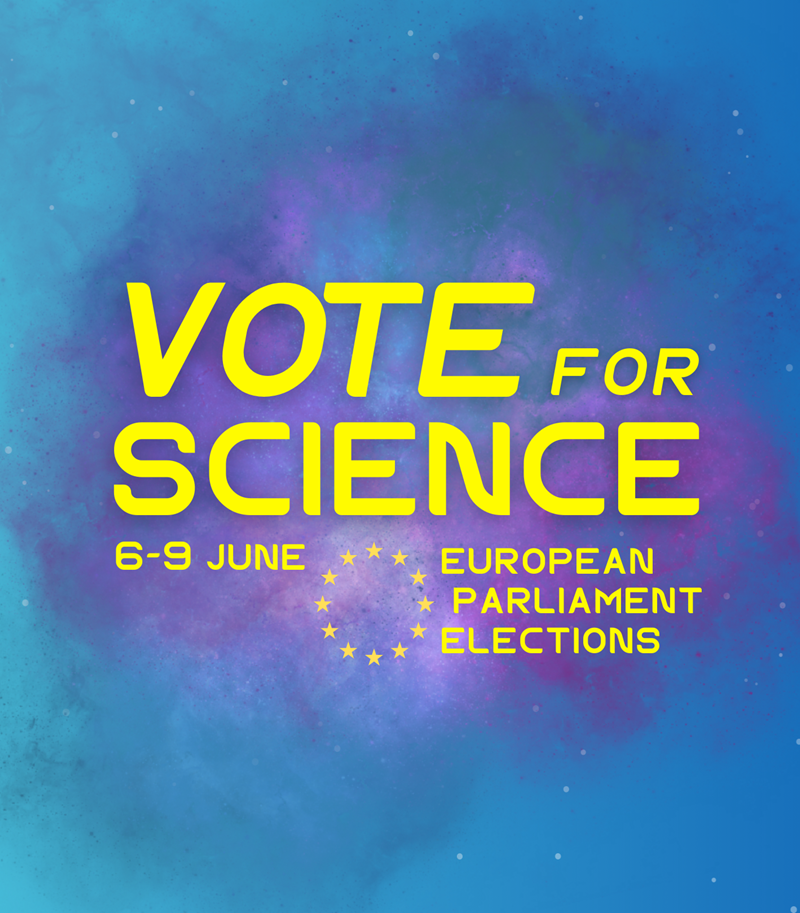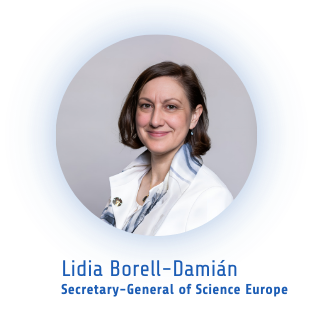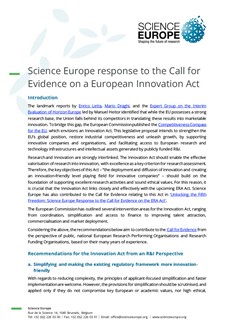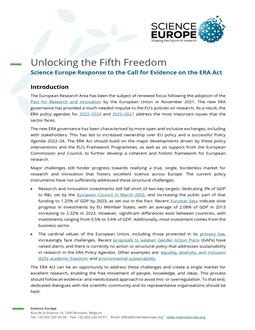
-
Share on
Vote for Science: European Parliament Elections 2024
In the run-up to the European Parliament elections on 6–9 June, Science Europe launches its ‘Vote for Science’ campaign. Using the hashtag #Vote4Science, we advocate political support for science research through the encouragement of informed policy making in forming the EU legislative agenda for the next five years.
Central to ‘Vote for Science’, Science Europe calls on the candidates for the European Parliament elections and 2024–29 European Commission to commit to five pledges to safeguard the future of European research and innovation.
“The upcoming elections are our opportunity to shape a future where science drives progress and addresses the critical challenges we face, by electing leaders who are committed to funding research, protecting academic freedom, and fostering collaboration and inclusion.

Science for the Benefit of Society
Scientific research is the cornerstone of societal advancement and the engine that drives innovation, prosperity, and the social, economic and environmental well-being of all Europeans. It is through scientific advancement that we can address pressing societal challenges such as climate change; the growing gap in living standards between rich and poor; and the need to prepare for future global health crises. As we open a new chapter in Europe’s political direction, the role of science in driving forward economic growth and enhancing the quality of life for all Europeans has never been more crucial. Continued investment in research across all disciplines and freedom of scientific inquiry is vital to ensure that Europe remains at the forefront of global innovation and progress.
![]()
Five Pledges for European Parliament Candidates
- Investing in society, culture and competitiveness
Consider scientific research in all disciplines as a public good. Funding research and research infrastructure is an investment in European society culture and competitiveness. Invest more money in basic research nationally and in the EU Framework Programme for R&I. Eliminate the R&I performance gap (‘widening’) for the benefit of Europe. Create research systems based on shared values, ensuring quality, impact, and that research activity transcends political considerations. - Freedom of scientific enquiry
Establish common rules to enable and protect the freedom of scientific enquiry. Universities, funding agencies, research performing organisations, academies and other research organisations should have the means to guarantee the academic freedom of all researchers, teachers and students. Likewise, the autonomy of funding decisions by funding bodies should be driven solely by scholarly excellence, and no discipline excluded for political views. - Collaboration, openness and equity
Rebalance research collaboration and competition, rewarding high quality outcomes over quantity. Recognise a broader array of skills and competencies to attract talented individuals to research careers. Embed principles of equitable access and facilitate ethical uses of Artificial Intelligence in research. Deliver research systems that are as open as possible and as closed as necessary, allowing international expertise to drive innovation and effectively address societal challenges. Provide clear legal frameworks for knowledge security. - Equality, Diversity, & Inclusion
In addition to gender, include factors such as socio-economic background, sexual orientation, and disability in new EU policies towards equality, diversity and inclusion (EDI). Define programmes supporting under-represented researcher groups, and foster the generalisation of inclusive language in policy and procedure documents. Develop legal frameworks to ethically gather data to improve EDI policies at national and European levels. - Science Communication
Integrate science communication from the outset of research programmes and projects, to improve public awareness of the ways research works addressing public distrust and misinformation. Elevate science communication to build strategic, long-term relationships between researchers, policy makers, and society. Recognise science communciation as a distinct field of expertise, and science communicators as professionals who apply evidence-based approaches.
🚀
Share our Pledge cards, Poster, and Video and help support research and innovation in Europe this election!
#Vote4Science
Get the files
![]()

How to vote
Find out everything you need to know about the upcoming elections and how to vote on the European Parliament website #UseYourVote: European elections 2024: all you need to know (europa.eu)















